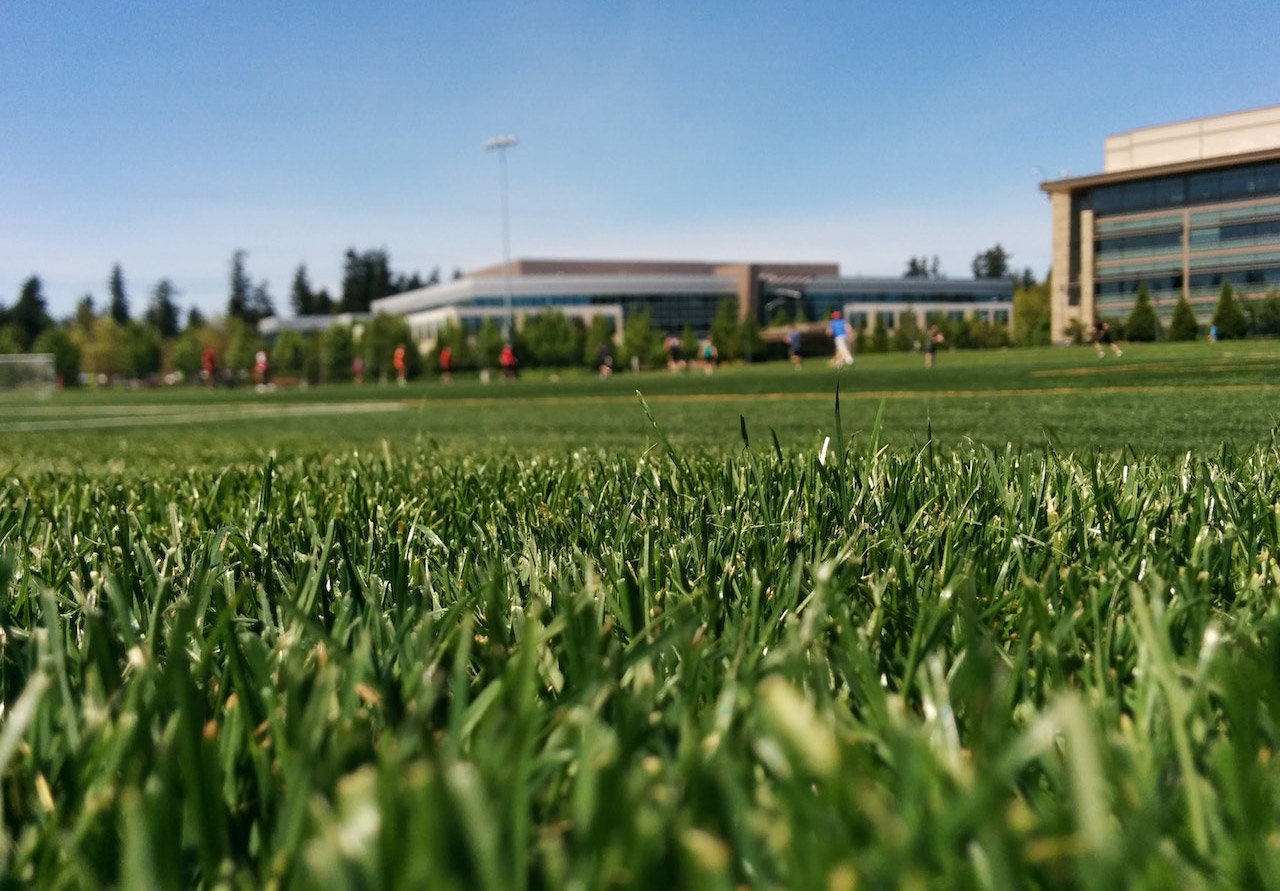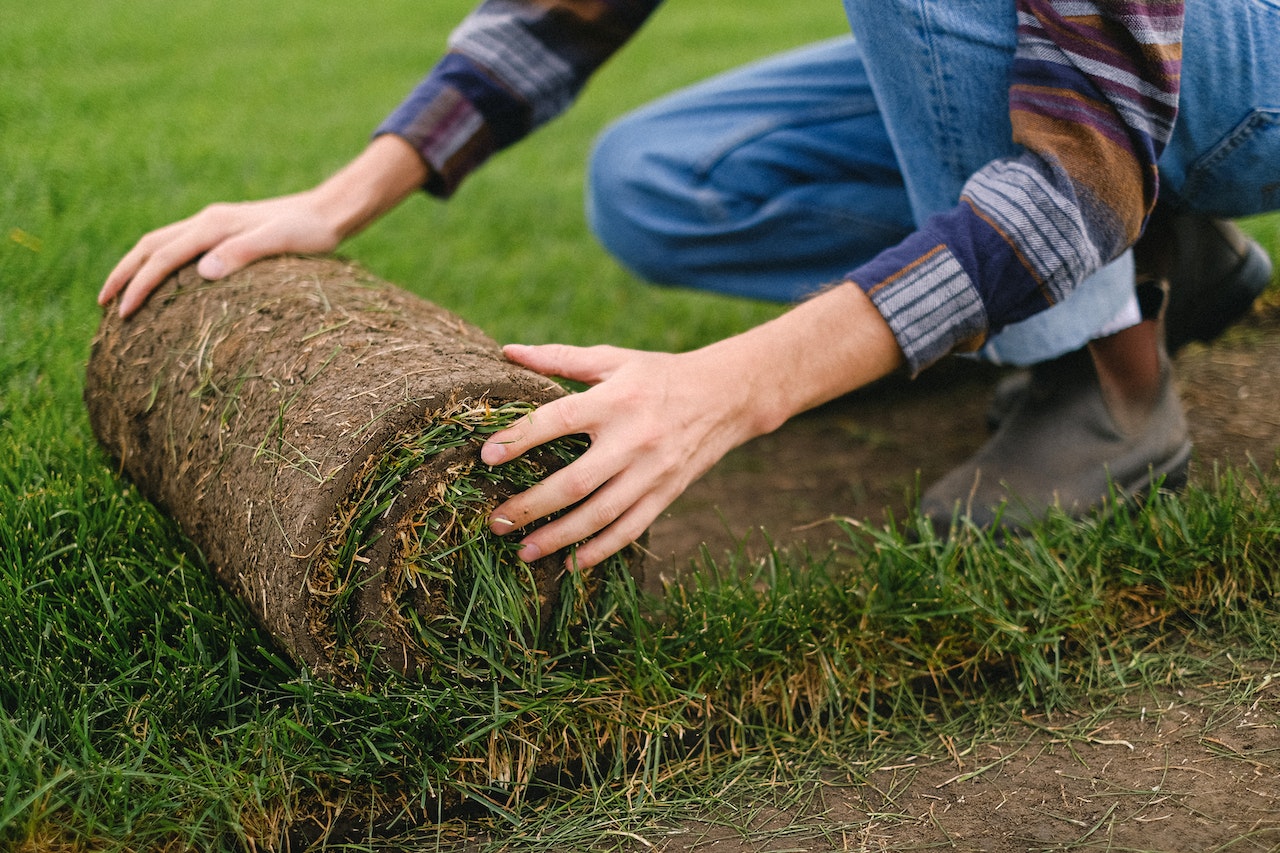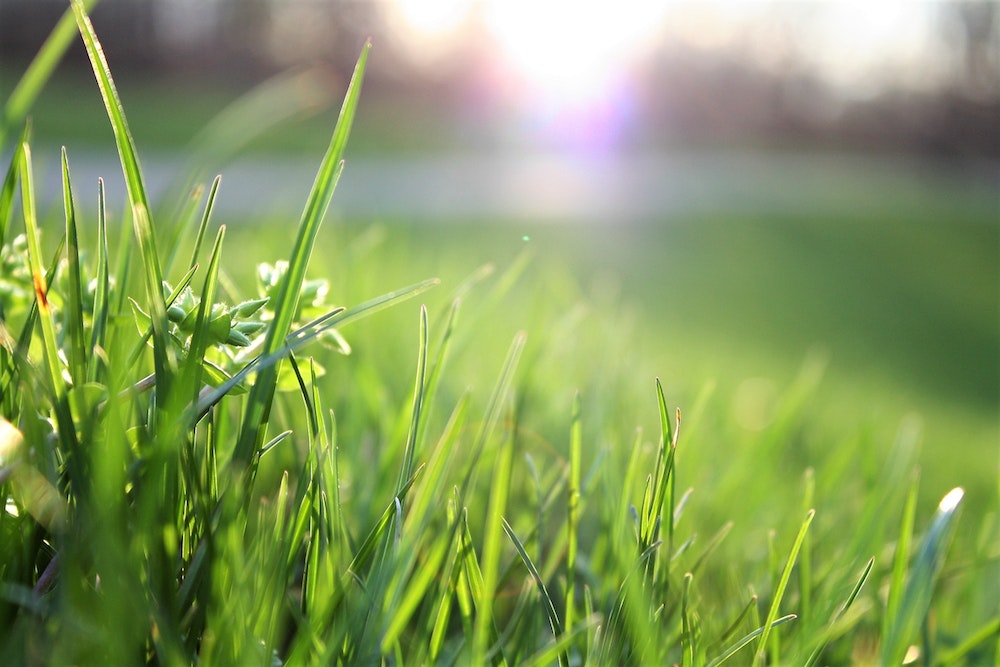Whether you’re a homeowner aiming for a lawn that’s the talk of the town, a landscaper in pursuit of excellence, or someone managing the greens of a golf course, picking the appropriate turf is essential.
Turf is not just a blanket term for green grass – different varieties come with distinct characteristics, making them more or less suitable for certain environments and uses.
The Importance of Choosing the Correct Turf
A thriving lawn can dramatically enhance the beauty of a home. But choosing just any grass won’t cut it.
Settling for an unsuitable type can leave you with a lawn that falls short of expectations. The ideal grass for your area should be resilient to local weather, be disease-resistant, handle regular activities, and fit within your care plan. Thoughtfully selecting your turf ensures a consistently green and welcoming lawn over the years.
However, if the grass doesn’t match your environment or needs, you could face:
- Unhealthy Appearance: A mismatched turf might be prone to diseases, resulting in unsightly spots or faded areas.
- High Upkeep: An inappropriate grass choice can demand more of your time, energy, and resources due to recurring lawn issues.
- Weather Vulnerability: Grass types not fit for your climate can wither or die during extreme conditions, leading to sparse or lifeless patches.
- Wear and Tear: Opting for grass that doesn’t bear regular use well can result in rapid degradation, especially in areas frequented by feet or play.
In essence, the right grass is more than just about aesthetics – it’s a strategic decision that benefits your outdoor area in the long run.

What Are The Different Turf Varieties?
Choosing the perfect grass for your lawn starts with understanding the different varieties available. Each type has its unique look and feel, and some may be better suited to your needs than others. Let’s take a closer look:
Kentucky Bluegrass
This is a popular choice for many homeowners and landscapers due to its fine texture and attractive deep green colour. Often likened to a plush carpet for its dense coverage, it’s a favourite for areas where a thick, luxurious lawn is desired.
Pros:- Handles areas with moderate foot traffic quite well, making it ideal for home lawns and parks.
- Versatile when it comes to soil, adapting from loamy to slightly clayey terrains.
- Craves consistent moisture, so regular watering is essential, especially in drier periods.
- While it loves the sun, it can wither in prolonged, intense heat. Shade during peak sun or extra watering might be necessary.
Rye Grasses
Growing at a pace that’s almost surprising, rye grasses are a go-to for quick lawn fixes. It’s often mixed with other grass types to create a multi-dimensional, vibrant lawn.
Pros:- Its speedy germination process makes it a favourite for overseeding existing lawns to give them a fresh boost.
- It can transform a sparse yard into a green haven in a relatively short span.
- It is not the best candidate for drought-prone areas as it thirsts for regular moisture.
- Though fast-growing, it does need its fair share of TLC, especially when newly sown.
Fescue Grasses
A variety that truly shines in the shade, Fescue grasses are a saviour for those tricky, low-light patches in a garden. Their adaptability in texture, from fine to medium, offers an array of options for homeowners.
Pros:- Its love for shade makes it the grass of choice for under trees or in gardens that only get fleeting sun.
- Compared to others, Fescue is quite the low-maintenance contender, especially once established.
- If your area is prone to blistering heat waves, Fescue might not be the best pick. It prefers the cooler side of the thermometer.
Bermuda
Known for its might and endurance, Bermuda grass is the first choice for areas that see a lot of action, including playgrounds and golf courses. Its built-in resilience against drought conditions makes it a wise choice for warmer climates.
Pros:- It’s a real trooper, handling everything from children’s play to regular sports activities.
- It’s relatively drought tolerant, so suits sunnier spots.
- One for the eco-conscious, Bermuda doesn’t mind a little neglect in the watering department.
- Residents of cooler regions, beware! Bermuda doesn’t like the cold and will brown out when the mercury drops.
- If you’ve got flower beds or vegetable patches nearby, keep an eye out. Bermuda is known to overstep its boundaries and could become invasive.
Choosing Your Turf
When determining the right grass for your lawn, consider:
Local Climate
When determining the right grass for your lawn, consider your local climate. In the UK, where the weather can be quite unpredictable, you might want to opt in for cool-season grasses such as Fescue or Ryegrass, which are well-suited to the UK’s moderate temperatures and frequent rainfall.
Activity Level
Think about how your lawn will be used. Grasses like Bermuda are champions at enduring regular activity and heavy foot traffic, making them ideal for busy outdoor spaces or areas where children and pets play.
Maintenance Expectations
Reflect on the level of maintenance you’re willing and able to provide. Are you ready to water, mow, and fertilise frequently? Or are you looking for something easy to maintain? Some grass types are more high maintenance than others, so align your choice with the time and effort you’re prepared to invest in lawn upkeep. If in doubt, hire professional garden maintenance specialists.

Laying and Maintenance Tips
Reflect on the level of maintenance you’re willing and able to provide. Are you ready to water, mow, and fertilise frequently? Or are you looking for something easy to maintain? Some grass types are more high maintenance than others, so align your choice with the time and effort you’re prepared to invest in lawn upkeep. If in doubt, hire professional garden maintenance specialists.
Laying Turf
Prepare the soil well. Remove any weeds, and ensure it’s levelled. Moistening the ground a day before laying the turf can help. Learn why professional turf installation is important.
Maintenance
While specific care varies across types of grass, a general rule is to mow regularly but not too short, water deeply but infrequently, and fertilise based on the grass’s nutritional needs. Read more about how to care for your turf here.
Ready to transform your lawn?
With 15 years of experience, the team at Green Team Landscaping are specialists in garden design and landscaping. They design exquisite dream gardens across North London and have a keen eye for environmentally friendly construction. From installing decking and water features to garden paths and lawn turfing, they deliver an impeccable garden finish.


